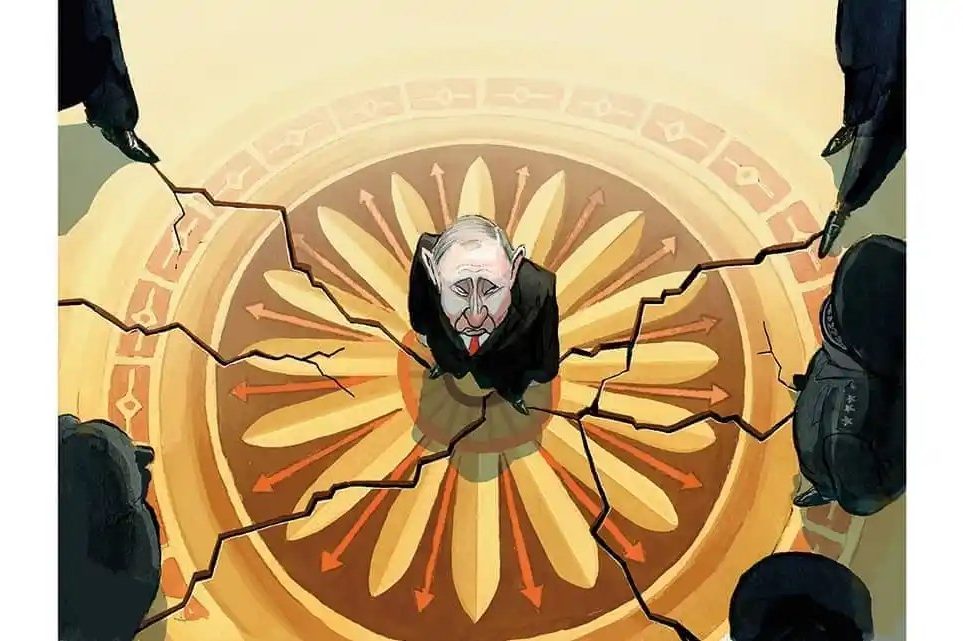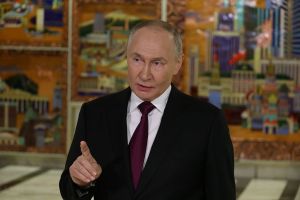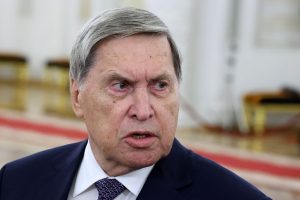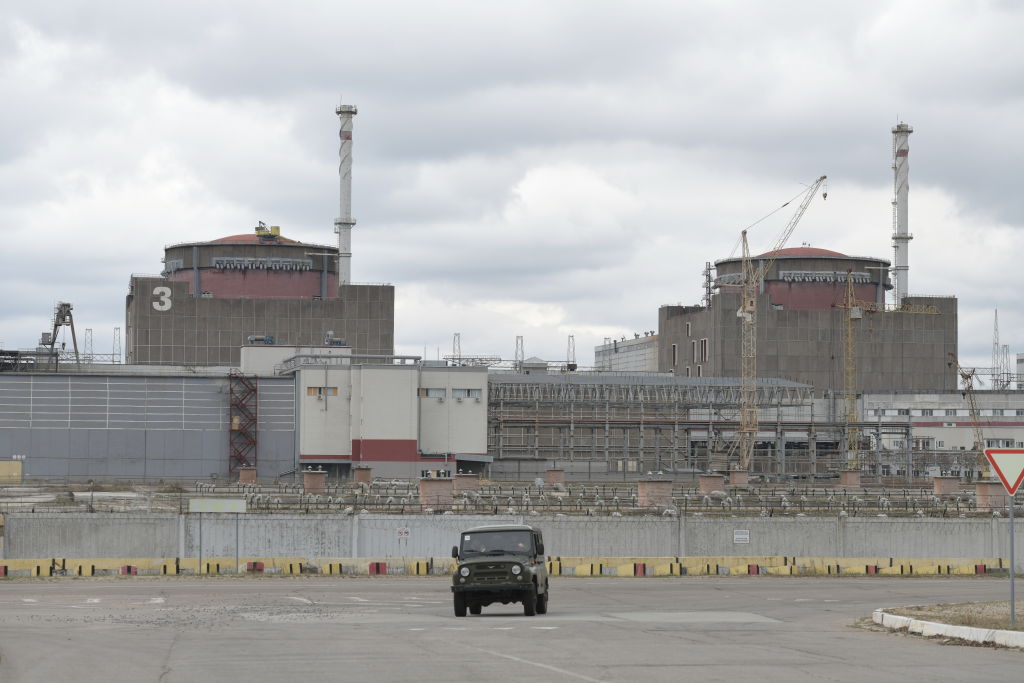Although I suspect few readers’ hearts will bleed for them, it’s been a bad week for Russian elites. There has been a spate of real or apparent suicides and the arrest of a gold magnate as he prepared to leave the country.
On Friday, Andrei Badalov, vice president of Transneft, Russia’s largest state-controlled pipeline transport company, fatally fell from the window of his apartment in Moscow. This makes him the eighth senior Russian figure to die in this way since 2022. Although the police say he left a suicide note, by now the suggestion that foul play is at work has become something of a tasteless meme.
This is a system in which everyone is corrupt, everyone has skeletons in their closet, and this is how Putin likes it
The next day, Konstantin Strukov, CEO of Yuzhuralzoloto, Russia’s third-largest gold producer, was preparing to fly to Turkey on Saturday on his private jet when the government revoked his passport, the federal aviation agency blocked his departure, and bailiffs boarded the plane and arrested him. He stands accused of massive, systematic corruption, using his financial and political muscle to seize coal and gold assets and then registering them under the names of relatives and other proxies.
Then on Monday, Roman Starovoit was dismissed from his position as transport minister, although it seems he was already lying dead in his car, with his own pistol – ironically, a ceremonial one he was awarded in 2023 – next to him. Until last year, he had been governor of the Kursk region, and it seems that his successor, Alexei Smirnov, who is already under arrest for the wholesale embezzlement of a fifth of all the funds intended for the construction of defenses against a Ukrainian attack, had also implicated Starovoit.
Inevitably, the gossip is of forcible defenestrations, of a new purge, but the truth is likely at once less sinister and yet more worrying for the Kremlin. The state does kill, but in the main doesn’t need to do so to members of the elite. This is a system in which everyone is corrupt, everyone has skeletons in their closet, and this is how Putin likes it: he has the excuses he needs whenever he wants someone made into an example. The humiliating arrest on camera, the show trial, the expropriation of the obscene riches accumulated through corruption and cronyism – these are the weapons of the Kremlin.
Some, probably most, of these suicides are likely exactly what they seem. The redefinition of the economy because of militarization and sanctions has created winners and losers; high interest rates and the closing of many old export and import routes has led to selective pressures. In some cases, businesspeople may have taken their lives because personal and business pressures became just too much – and however outré it may sound, there are national propensities for suicide methods. Most suicides in the US are, predictably enough, by gun; in India, it is common to take pesticides; In Hong Kong, and in Russia, people jump from tall buildings.
Yet not all of these deaths are necessarily genuine suicides either. The increased pressures on the economy do seem to be pushing some more sharp-fanged or desperate business-political interests into more brutal competition for assets. As the national pie shrinks, the fight to retain the size of your slice increases. Usually, this is through pulling political strings to win contracts or preference, or else reiderstvo, “raiding,” using fake documents or corrupted judges to take over rival companies. Sometimes, though, more severe methods are used: contract killings are again on the rise, and while most tend to use more unsubtle methods, some “suicides” may be distinctly involuntary.
Yet for every death there are many more arrests of corrupt officials and businesspeople. Putin’s unspoken social contract with the elite is that they can steal, but only within certain limits and only so long as they are loyal to the Kremlin. That is unchanged, but the acceptable limits of personal enrichment and just what “loyalty” means seem to be shifting, and in unpredictable ways. As one Moscow insider put it to me, “the elites are willing to stay within the red lines – but what terrifies them is that they don’t know where those lines are anymore.”
This even affects those who were once untouchable. Strukov, for example, was a powerful figure within the Chelyabinsk region apparatus of Putin’s United Russia bloc and deputy speaker of regional legislature. Starovoit, likewise, was a United Russia stalwart, a protégé of Arkady Rotenberg, one of Putin’s childhood friends, and – not uncoincidentally – one of the country’s richest men. So many other recent targets were once feted. Former defense minister Timus Ivanov, just sentenced to 13 years on bribery charges, was a Hero of Russia.
This looks less like a deliberate purge, and more like the convulsions of a system in slow-motion crisis. A business elite increasingly engaged in cannibalistic competition for diminishing assets, a Kremlin that mistrusts the people on whom it depends to run its country and economy, that demands compliance with unspoken, unfixed and unclear rules. It certainly doesn’t mean Putinism is headed for some imminent fall. But it does demonstrate that even as the war machine continues to grind on, the damage being done to the Russian regime is very real.

























